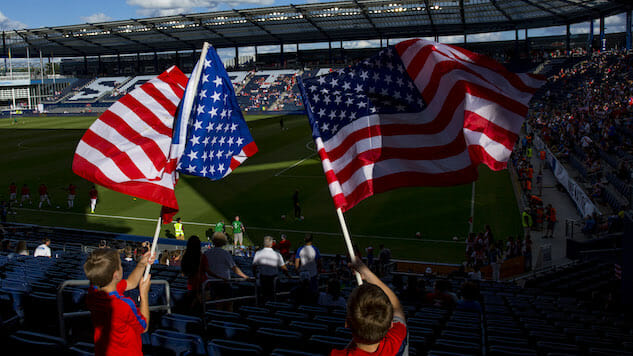Why the #ProRelForUSA Movement is So Utterly Ineffective
Photo by Kyle Rivas/Getty
Another day, another post discussing promotion and relegation and American soccer culture.
This one however will hopefully be less excruciating than most pro/rel debates you’ve read on the Internet, but the searing pain is itself very much the point. Reform of US Soccer’s league structure, while important, should not be this hard to talk about. The issue, however, has become a festering sore spot in American soccer culture: something that is approached with sufficient dread to override more serious considerations.
Political activism, in its most basic form, is about turning ideas into reality. That requires a theory of social change: an idea of what actions will lead to that desired end outcome and how. It is not enough just to have a good idea, which, as American soccer continues to grow, pro/rel increasingly appears to be. But the “ProRelForUSA” movement has nothing to offer here except sound and fury. After years of online activism with nothing to show for it beyond rancor, the promotion and relegation campaign has proven itself to be a remarkably ineffective political movement
-

-

-

-

-

-

-

-

-

-

-

-

-

-

-

-

-

-

-

-

-

-

-

-

-

-

-

-

-

-

-

-

-

-

-

-

-

-

-

-








































